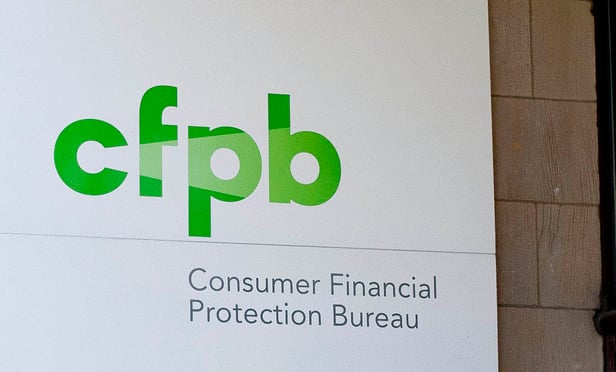 Consumer Financial Protection Bureau building in Washington, D.C.
Consumer Financial Protection Bureau building in Washington, D.C.
Credit/Diego M. Radzinschi
The CFPB released its advisory opinion Wednesday for those financial institutions, including credit unions, with more than $10 billion in assets to give consumers or members detailed informational reports about their accounts for free and complete them "in a timely manner." NAFCU officials said this additional regulatory requirement "is another instance of the bureau overstepping its authority."
In its advisory opinion, and according to an analysis published by NAFCU, the CFPB outlined several types of information financial institutions "should provide quickly and without fees upon a consumer's request under section 1034(c) of the Dodd-Frank Act, including information that would appear on periodic statements or online portal accounts." Those pieces of information included:
- The balance in a deposit account;
- Interest rate on a loan or credit card;
- Payments and transactions information;
- Recurring transactions; and
- Terms and conditions of the account, including fee schedules.
Of the new advisory opinion, NAFCU SVP of Government Affairs Greg Mesack said, "The bureau is enacting a substantial policy change while making a mockery of the [Administrative Procedure Act (APA)] process that was created to protect Americans from regulatory overreach – mandating solutions to nebulous problems without seeking input from the public or affected stakeholders. This is why Congress needs to reform the CFPB and ensure there are proper checks and balances in place to hold the bureau accountable to its mission and proper processes."
Recommended For You
The advisory opinion stated that while initial requests for this information should be done for free, consumers or members can be charged for repeated requests of the same information.
NAFCU pointed out that "the advisory opinion does not explicitly indicate what constitutes a long wait time in violation of the rule, but directs financial institutions to existing requirements, such as those under Regulation X, to help inform what the bureau means by 'in a timely manner.'"
According to the CFPB, the bureau will not enact monetary penalties for violations before Feb. 1, 2024.
© Touchpoint Markets, All Rights Reserved. Request academic re-use from www.copyright.com. All other uses, submit a request to [email protected]. For more inforrmation visit Asset & Logo Licensing.







